Why an abandoned freezing works is being resurrected
Ashburton's freezing works was an economic powerhouse for more than 100 years until its closure in 2019. Now, plans are underway to resurrect the old site. Local democracy reporter JONATHAN LEASK delves into its history and what the future may hold.
*****************
Fairton has a long history of being a key economic centre for the Ashburton District.
For over 100 years it was home to the freezing works. It provided jobs in the region and economic benefits until it closure in 2019.
It is now being resurrected as a commercial land of opportunity to return to its former glory as a key pillar in the district.
Talley’s general manager of Fairfield, farming, and freight, Aaron Chudleigh, said the company took over the former Silver Fern Farms site in 2020 after seeing its regional potential.
“With a substantial business already here, the site allowed us to future-proof our position in the district.”
The company decided to buy the former works site due to the existing rail siding, cold storage, effluent discharge, farmland and water, as well as the location making it a viable option for expansion.
The site is close to the existing vegetable production plant, and Talley’s was already leasing the cold stores for storing its vegetables.
Purchasing the site allowed Talley's to establish Fairfield Farms, separating the farming operations from the vegetable production.
Fairfield Farms uses the 485 hectares of land for growing crops but not the 30ha of the freezing works plant.
When Talley’s purchased the site it was with plans to demolish much of the old freezing works.
“There was a lot of earthquake damage and a lot of the older buildings just weren’t up to standard or compliant.
“When you become a new owner you have to bring the buildings up to code before you can operate them.”
Talley’s had no plans to operate the site as a freezing works because of a covenant preventing meat production for 50 years, Chudleigh said.
Facing expensive compliance work to refurbish and retain buildings they weren’t able to use, the only sensible option was demolition, Chudleigh said.
Of the freezing works building footprint “somewhere between a third and a half” has been retained – including the cool stores, amenities block, and the works office.
“Pretty much everything that was built after the 1970s has been kept.”
Southern Demolition completed the demolition, starting in 2022, and was responsible for the asbestos removal and recycling materials, Chudleigh said.
“The big thing was to first get the demolition done properly and then to get the freight hub going.
“Now we can look at what to do with the rest of the site.
They have options for the 30ha, the leading contender of which would be a business park to support and service the freight hub, "but its still in the early stages", he said.
Ashburton mayor Neil Brown is supportive of Talley’s work towards expanding its operations and revitalising the site at Fairton.
“It all ties in with the economic development of the district and growing our economy, which means more jobs.”
The historic significance of the site isn’t being ignored.
“We are aware of our footprint and presence in the district, and want to keep some of the history alive,” Chudleigh said.
Talley’s is working with Historic Places Mid Canterbury to install some interpretive panels to detail the history of the site next to the Fairton Hall.
Ashburton District Councillor Carolyn Cameron, who chairs the Historic Working Group, said she is pleased "the history of this site is maintained and acknowledged”.
“The Fairton works site has great significance to our agricultural history and the place where many in the district have connections.
“It is important to acknowledge the significance of this site.”
The Fairfield Freezing Works opened in March 1899 in what was a significant addition to Ashburton's economy.
Sheep farming was a cornerstone of the Canterbury economy in the late 1800s when the then Fairfield Freezing Works, owned by the Canterbury Frozen Meat Company (CFM), played an important part in processing sheep meat for Britain.
The Cyclopaedia of New Zealand (1903) stated the works were considered to be the finest in the Southern Hemisphere, and put through 500 sheep in a day, and had a storage capacity for 80,000 carcases.
The co-operative went on to become PPCS (Primary Producers Co-operative Society) and later Silver Fern Farms.
The Fairton plant was one of the biggest employers in the Ashburton district for 125 years.
At its peak, the plant was a three-chain sheep meat operation employing more than 700 staff.
Silver Fern Farms closed its Fairton sheep meat processing plant In May 2017, affecting 370 staff.
In the face of declining sheep numbers, Silver Fern Farms said at the time that Fairton was unprofitable and its closure meant it could consolidate volume at its Pareora site south of Timaru.
It then closed then closed its pelt processing plant, affecting 48 staff, in 2019.
The site then went on the market in 2020 offering 485 hectares of land, comprising 32ha at the former Fairton plant and 453ha of adjacent rural land.
Talley’s purchased the site in 2020.
Worst Xmas ever?
There's a a lot of planning that goes into Christmas day and sometimes things just don't go to plan. But it can be a good thing - a family mishap or hilarious memory that you can laugh about in Christmases to come.
Whether you burnt the dinner or were stranded at an airport...
Share your Christmas mishaps below!

⚠️ DOGS DIE IN HOT CARS. If you love them, don't leave them. ⚠️
It's a message we share time and time again, and this year, we're calling on you to help us spread that message further.
Did you know that calls to SPCA about dogs left inside hot cars made up a whopping 11% of all welfare calls last summer? This is a completely preventable issue, and one which is causing hundreds of dogs (often loved pets) to suffer.
Here are some quick facts to share with the dog owners in your life:
👉 The temperature inside a car can heat to over 50°C in less than 15 minutes.
👉 Parking in the shade and cracking windows does little to help on a warm day. Dogs rely on panting to keep cool, which they can't do in a hot car.
👉 This puts dogs at a high risk of heatstroke - a serious condition for dogs, with a mortality rate between 39%-50%.
👉 It is an offence under the Animal Welfare Act to leave a dog in a hot vehicle if they are showing signs of heat stress. You can be fined, and prosecuted.
SPCA has created downloadable resources to help you spread the message even further. Posters, a flyer, and a social media tile can be downloaded from our website here: www.spca.nz...
We encourage you to use these - and ask your local businesses to display the posters if they can. Flyers can be kept in your car and handed out as needed.
This is a community problem, and one we cannot solve alone. Help us to prevent more tragedies this summer by sharing this post.
On behalf of the animals - thank you ❤️







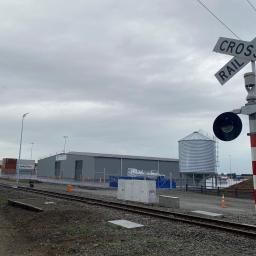
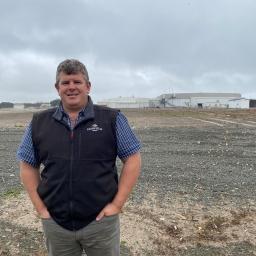
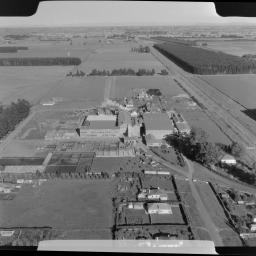
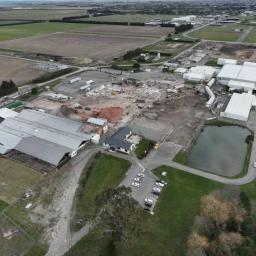
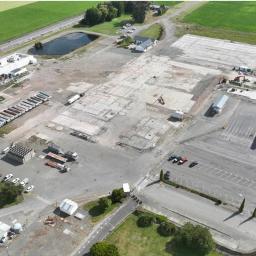
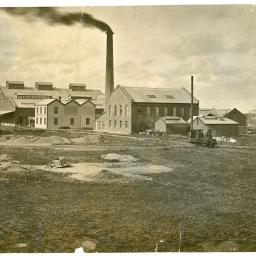


 Loading…
Loading…























